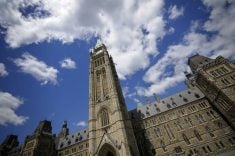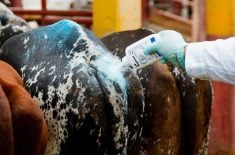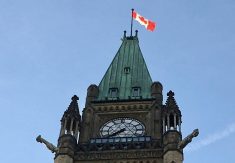WASHINGTON (Reuters) — A government ethics watchdog on Thursday asked for an investigation into the U.S. Environmental Protection Agency’s proposal to cut federal biofuel use targets for 2014.
Citizens for Responsibility and Ethics in Washington said the EPA’s inspector general should look into whether The Carlyle Group and Delta Air Lines improperly influenced the agency’s draft rule issued late last year.
The request followed a Reuters report this month about how Carlyle and Delta, owners of two Philadephia-area oil refineries, worked with policymakers to help convince the administration to lower the biofuel mandate.
Read Also

Dryness, drought likely to persist says forecaster
As winter approaches, the dry conditions and drought across much of the Canadian Prairies and the United States Plains will likely persist, said Drew Lerner, meteorologist with World Weather Inc. in Overland Park, Kan.
“Given that the agency’s decision to lower renewable fuel standards is an unprecedented break from past practices, the public has a right to know whether this decision was based on policy or politics,” CREW executive director Melanie Sloan said in a statement.
The draft rule cut the amount of fuels such as corn-based ethanol and soy biodiesel to be used in 2014 to a minimum of 57.6 billion litres from the 69 billion litres mandated by a 2007 law. It was the first proposed cut to the overall mandate since the program was created.
EPA, which administers the program, said it proposed the cuts because U.S. energy markets cannot absorb the required levels of biofuel at the current rate of gasoline and diesel usage.
Refiners have for years lobbied intensely against the Renewable Fuel Standard, which requires increasing amounts of biofuels to be blended each year through 2022.
Weak gasoline demand has placed the nation on a course with the “blend wall,” where the federal targets will require ethanol to be blended into gasoline at levels higher than the 10 percent mix that dominates U.S. fuelling infrastructure.














